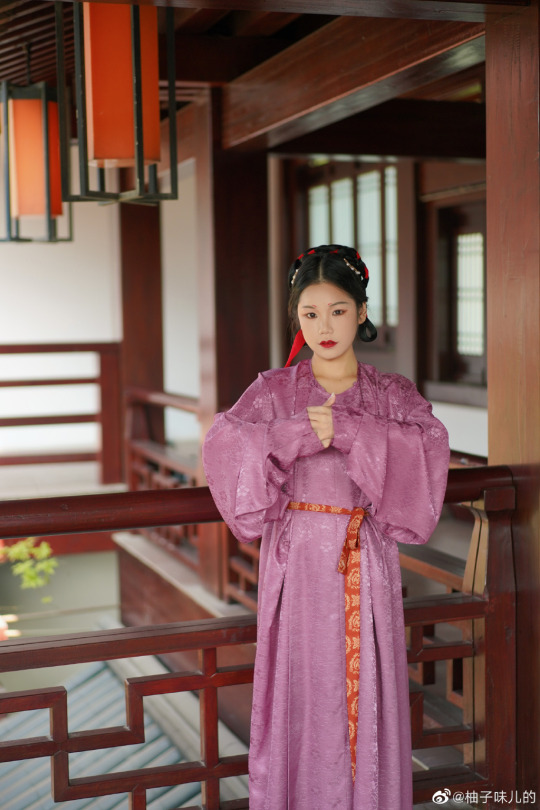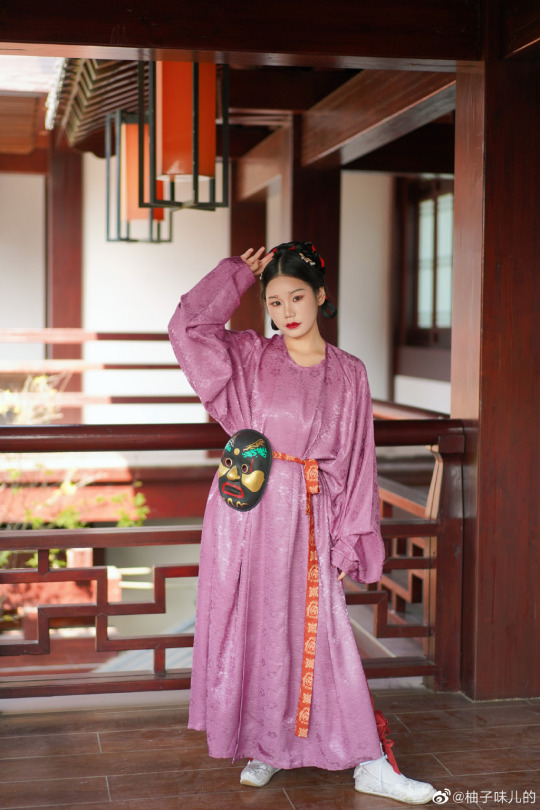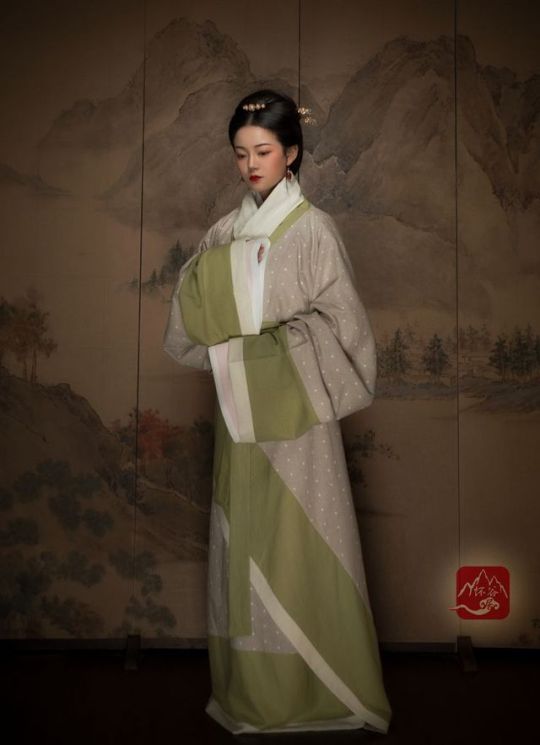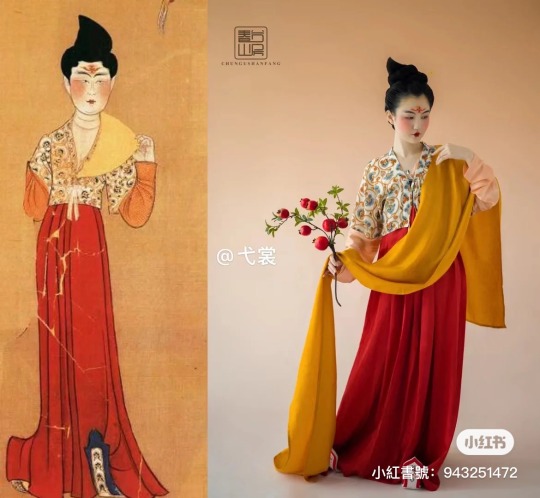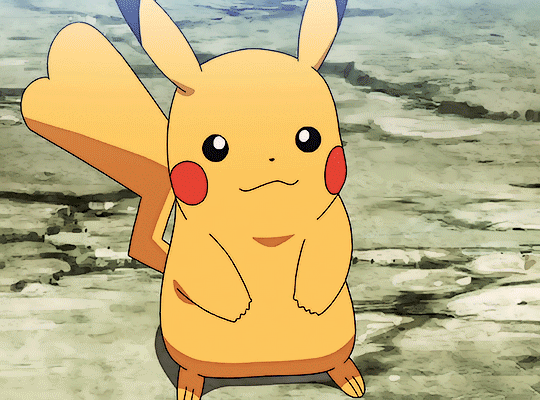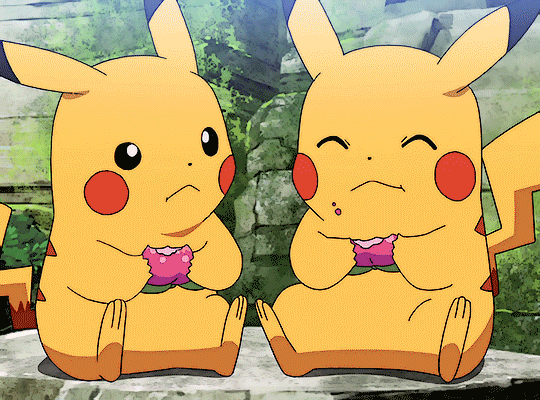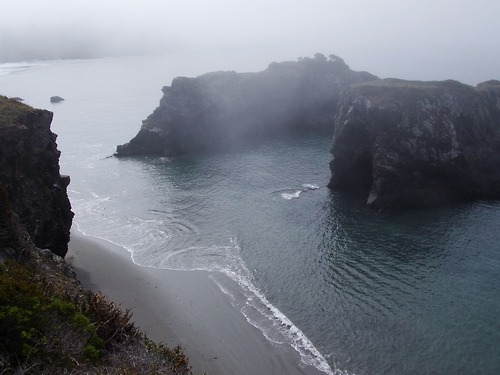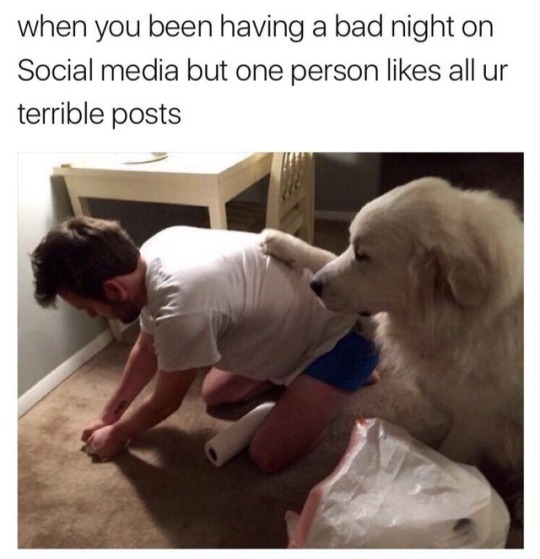Note
Hi I was wondering about your thoughts on Hanfu in television dramas? How accurate overall do you think they are? Thanks!
Hi! I shared my thoughts on the subject here and here, so check those posts out if you haven’t already! ^^
Overall, I think Hanfu in Chinese television dramas are about 60% accurate (I might be too optimistic though). Of course, some dramas are more accurate than others, depending on how much the creators care about historical accuracy. The inaccuracies tend to be caused by: 1) mixing up fashions from different Chinese dynasties (and occasionally different cultures), 2) taking creative liberties with design & style, 3) adding modern/non-Hanfu elements like lace, etc. I don’t think these actions are necessarily bad - sometimes they can enhance the visual aspect of the drama. However, if the inaccuracies are particularly egregious, it does annoy me. I do think the accuracy of Hanfu in Chinese dramas is improving though!
Let’s take the 2019 Chinese television drama “The Legend of Haolan” as an example:
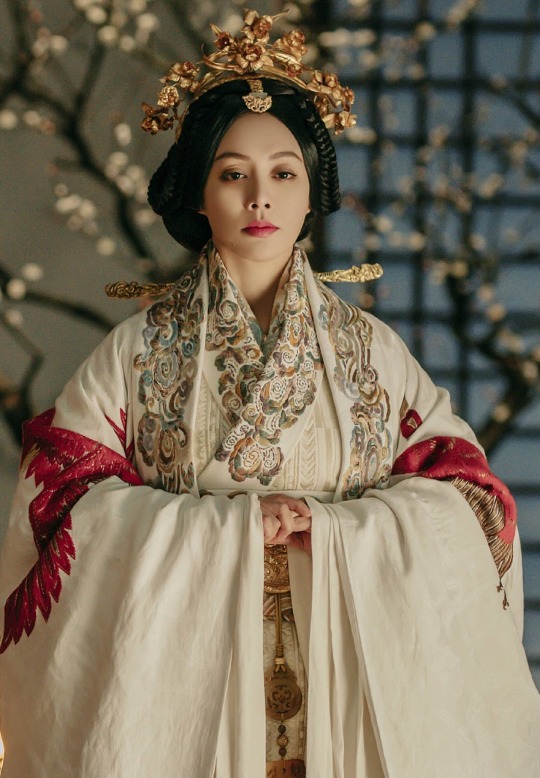
This drama is set during the Warring States period, and the costumes are generally stylistically accurate for the time period, consisting mainly of cross-collared one-piece robes such as Quju and Zhiju:

I like how the costumes utilize deep and rich color tones, which are in line with the earthy palette of Warring States clothing (don’t know about this hair though):

The embroidery and patterns on the costumes are also reminiscent of fashions during and around the Warring States period:

There was a lot of effort put into the accessories, from the beautiful dangling jade Jinbu (waist ornaments)…:

….to the impressive headgear for men:
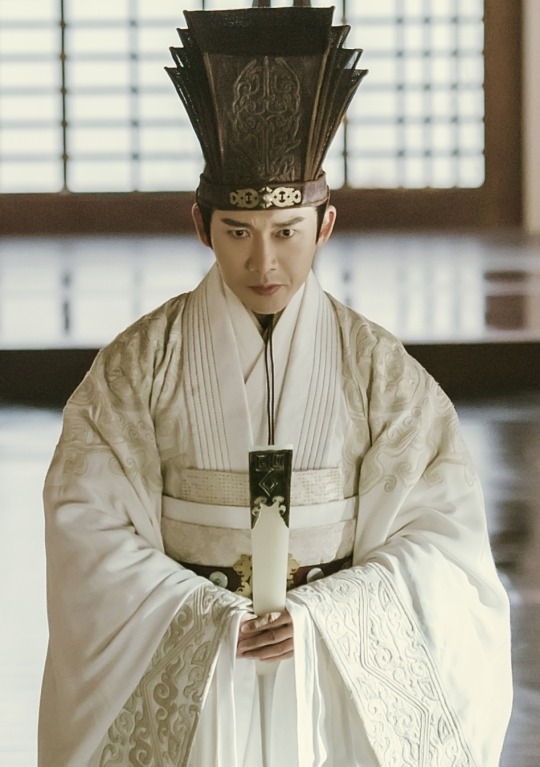
Overall, “Legend of Haolan” is an example of a typical Chinese drama that, while not entirely historically accurate, has put effort into recreating the essence of the fashion of the time period that it’s set in. For accuracy I give it a 60%, but for sheer beauty and aesthetics I give it a 90%.

Hope this helps!
550 notes
·
View notes
Photo

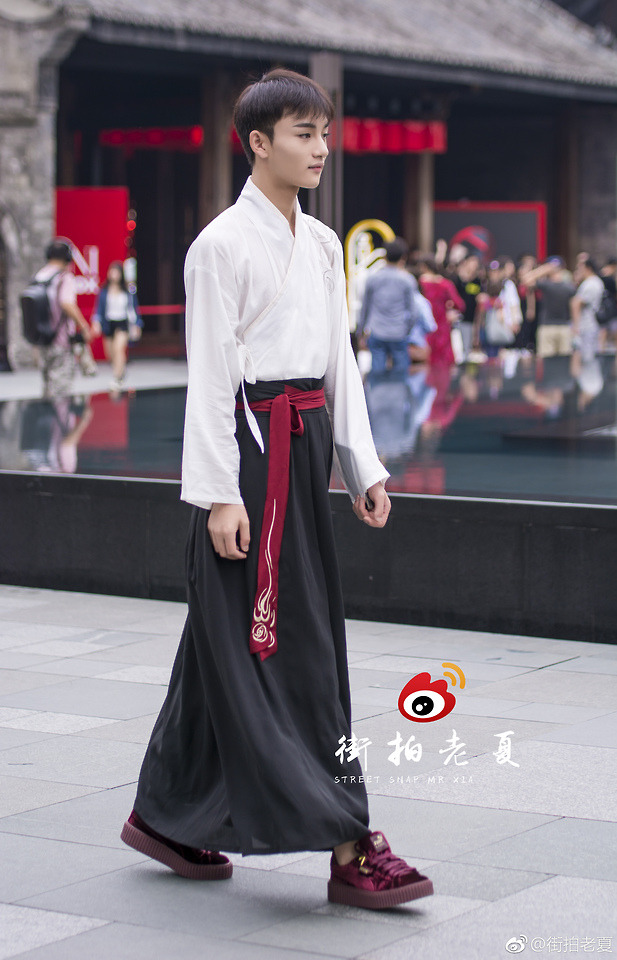
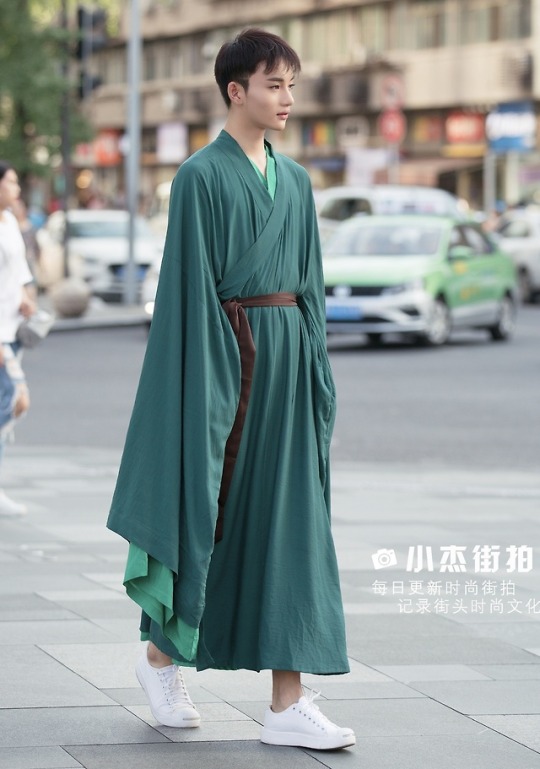
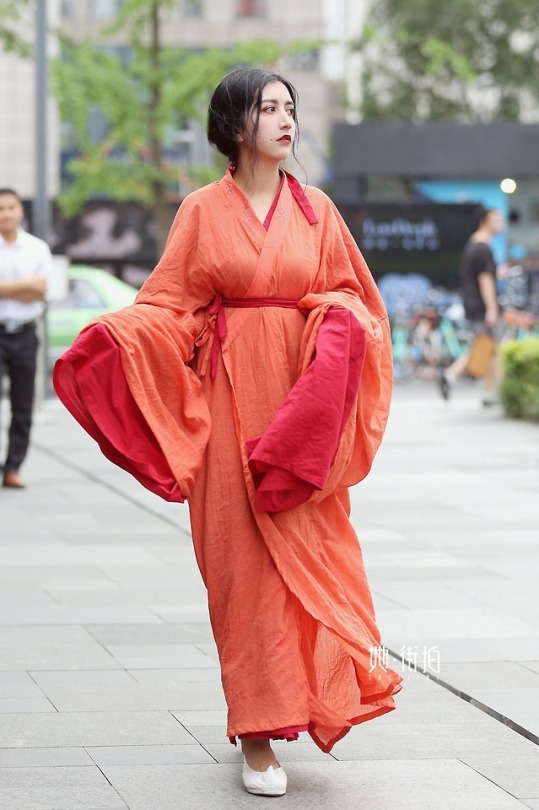


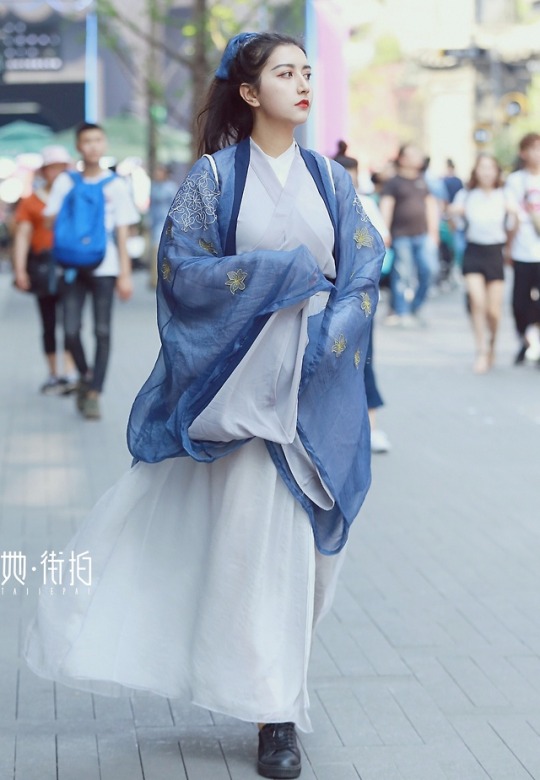

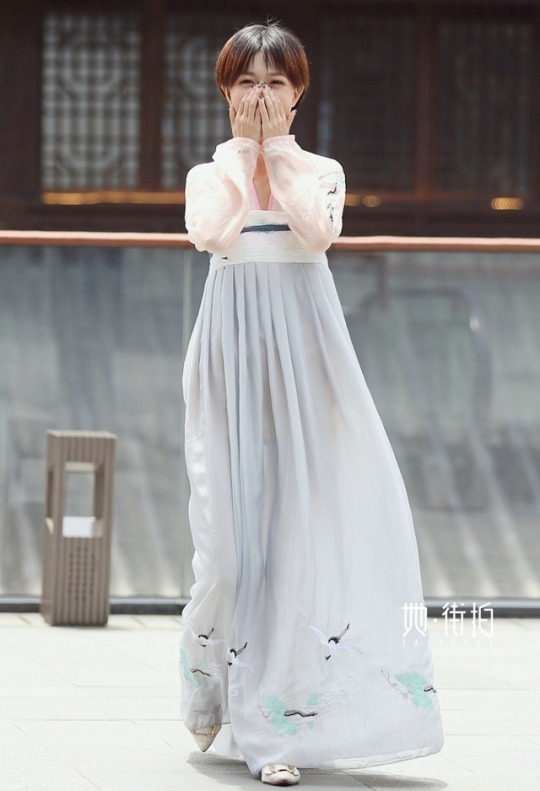

Traditional Chinese Hanfu Street Fashion
Influenced by the hanfu revival movement, more Chinese youth are wearing traditional hanfu casually as a form of fashion and self-expression.
Photos via 街拍滚叔, 街拍老夏, 小杰街拍, 她街拍.
7K notes
·
View notes
Text
遼 Liao dynasty 釵頭鳳 phoenix hairpin
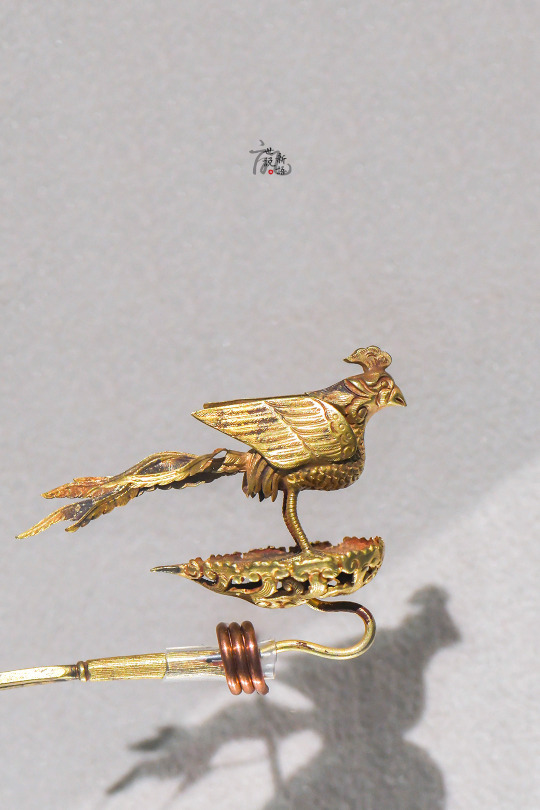
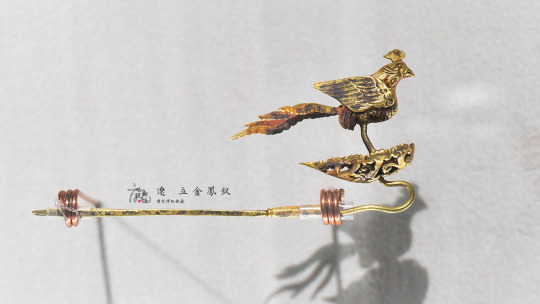
鳳凰于飛 翽翽其羽 亦集爰止 藹藹王多吉士 維君子使 媚於天子 | 鳳凰于飛 翽翽其羽 亦傅於天 藹藹王多吉人 維君子命 媚於庶人 | 鳳凰鳴矣 於彼高岡 梧桐生矣 於彼朝陽 菶菶萋萋 雍雍喈喈 | 君子之車 既庶且多 君子之馬 既閒且馳 矢詩不多 維以遂歌 [詩經•大雅]
143 notes
·
View notes
Text
Extra Resources for CRYG: Mulan’s Historically Accurate Render & Research
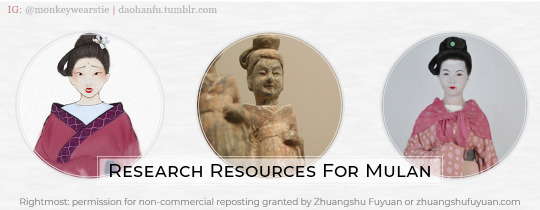
First of all, I’d like to thank everyone whom shared and liked my (Relatively) Historically Accurate Mulan I | CRYG post.
I am delightfully overwhelmed with all the responses from the past week, especially after I had some frustrating struggles with Tumblr’s anti-spamming and tagging system. As a result, I had to take out some very interesting references and external links from the original post.
If you are interested in learning more about the historic-cultural context of Mulan, or want to create your own historically accurate interpretations, here are some resources you’d be interested:
Keep reading
176 notes
·
View notes
Note
Hi! Okay so, I'm trying to do my first OOAK doll based on Mulan, and her story goes back to about 500AD, right? I found the history of hanfu post and a couple of them overlap. Can you help me narrow down what Mulan might have actually worn when not on the battlefield?
Hi, thanks for the question!
The historic setting of Mulan is the Northern and Southern dynasties period (420–589), specifically the Northern Wei dynasty (386–536).
During the Northern Wei dynasty, women usually wore two-piece ruqun/襦裙. The cross-collared tops (“ru”) of the ruqun were mostly simple and short, whereas the skirts (“qun”) were elaborate, and wrapped tightly around the waist. The sleeves were excessively wide. Below - Northern Wei figures of young women (X):
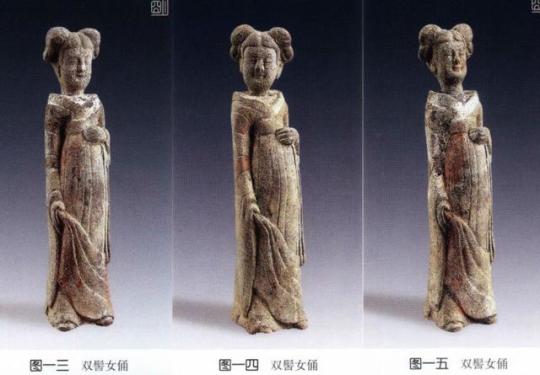
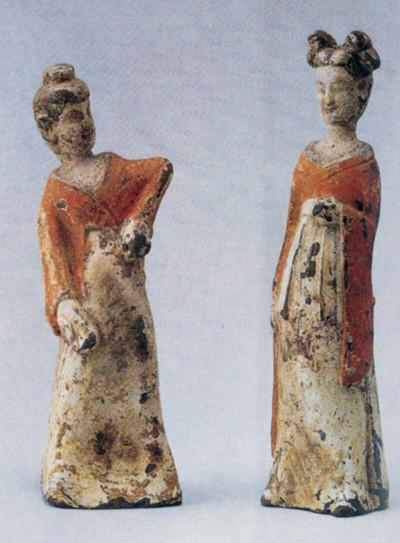
As you can see, one of the most distinctive features of Northern Wei hanfu was the collar, which was much wider and open at the top compared to collars during other periods of Chinese history. The collars were so wide as to render visible the circular-collared undergarments women wore underneath their tops. Below - historical recreation of Northern Wei ruqun (X):

As for the skirts, they were wrapped relatively high around the waist, with the ends of the sash trailing down the front. The skirts were typically long and finely pleated. Below - additional historical recreations of Northern Wei ruqun from 裝束复原 and 朝代復原体验:

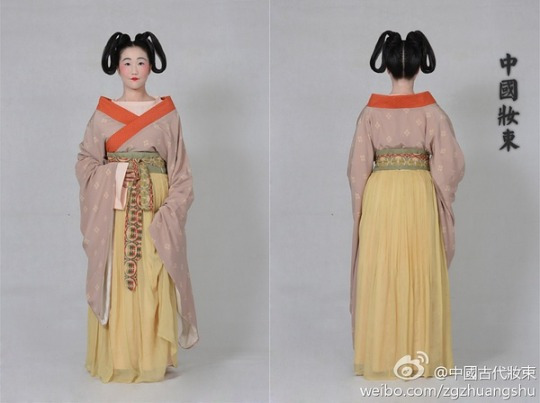

Finally, when it came to hairstyles, Northern Wei women tended to do their hair up into two buns, in order to look slender and more elegant (X):

I hope this helps give you a better idea of what Mulan might have actually worn when not on the battlefield, and good luck! Also, if anyone has more insights into Northern Wei hanfu, please do share! ^^
Sources: 1, 2, 3
Edit: Here are two more examples of Northern and Southern dynasties hanfu for women, from 踏云馆:


2K notes
·
View notes
Note
hey! I've heard some ppl talking (complaining) about how, in the upcoming Mulan movie, there seems to be historical inaccuracy w the clothing?? Personally, I thouht there was; it looks like tang then switches to song for her like,,,big Matchmaker outfit?? I'm not really sure T.T What's your opinion??
Hi, thanks for the question!
Yep, you’re right - the costumes in Disney’s live-action Mulan film seem to be mostly based on the Tang dynasty, but Mulan’s matchmaker outfit is quite different. Let’s take a look at it (excuse the low quality screenshots):

We see that she’s wearing a (rather cheap-looking) one-piece, long-sleeved purple robe with spiraling hems, that resembles the type of hanfu called quju. Quju was popular during the Han dynasty, and wasn’t worn during the Tang dynasty. Below is an image of Mulan’s outfit (left) and a modern quju (right). Aside from Mulan’s strange “sash”, the outfits look quite similar from the waist down:

Once we look more closely at the top half of her outfit, things get weird(er):

First of all, the collars are very loose and open, which would never be the case on an actual quju. Second, she appears to be wearing underneath her purple robe an embroidered Tang dynasty-style hezi (chest cover), which is never worn with quju. It makes her look like she’s wearing a heziqun (hezi dress) under her “quju” - essentially, two styles from two different time periods worn on top of each other. It is, quite frankly, a bizarre look. Below for comparison - quju (left) & heziqun (right):
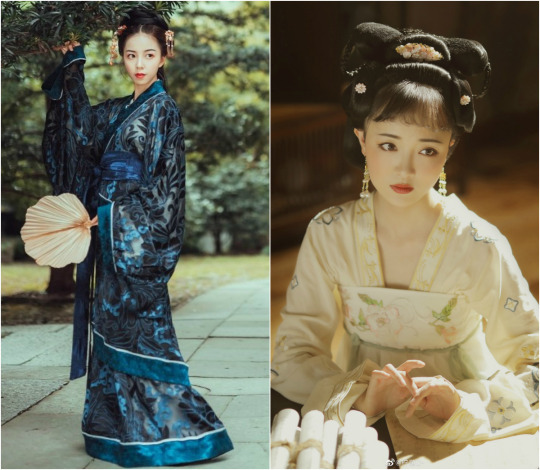
If you want to see what Mulan actually would’ve worn during the Northern Wei dynasty (the setting of the original Ballad of Mulan), I have posts on that here and here. Popular hanfu brand Qianshan Yuandai also came out with a design that combines Northern Wei style with the color scheme of the original matchmaker outfit:

Another historical inaccuracy is that most of the women in the film wear earrings, which would not have been the case during the Tang, Han, or Northern Wei, as ordinary women only started wearing earrings during the Song dynasty (which I wrote about here):
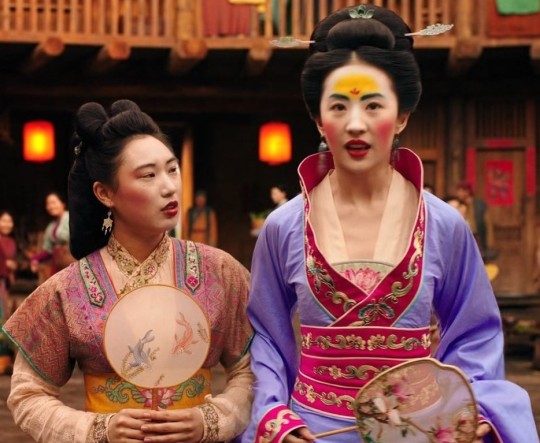
Still, I’ll give credit where credit’s due - the makeup does portray some actual historical Chinese trends (even though it’s applied badly). For example, Mulan has a red huadian (forehead decoration) and e huang (yellow forehead) makeup, in which the forehead was painted yellow as an early form of contouring:
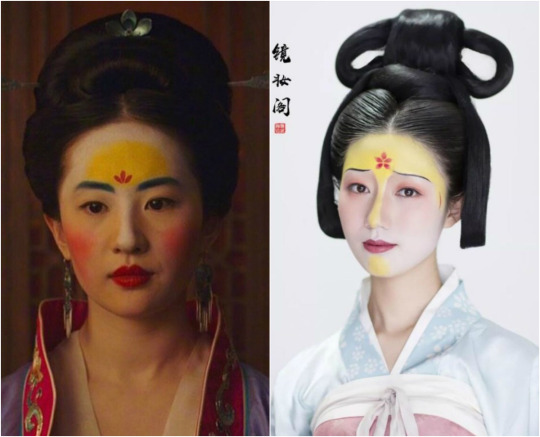
The matchmaker has two black mianye (dimple-like cheek decorations) as well as two blue xiehong, which are crescents painted besides the temples:
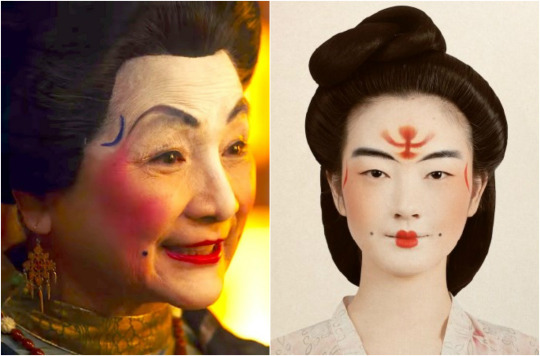
There’s a lot more I could say on the historical accuracy & aesthetics of the film’s costumes, but I’ll just cover the matchmaking scene here. Hope this helps!
999 notes
·
View notes
Text
IT’S GONNA TAKE A LOT TO TAKE ME AWAY FROM YOUUUUU
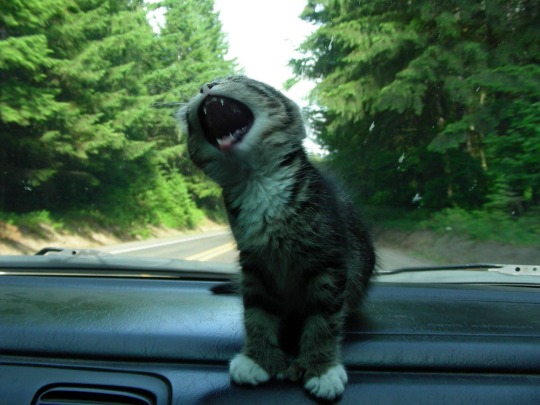
THERE’S NOTHING THAT A HUNDRED MEN OR MORE COULD EVER DOOOOO

I BLESS THE RAINS DOWN IN AAAAAFRICA

GONNA TAKE SOME TIME TO DO THE THINGS WE NEVER HaAAaAaAAAAAAD
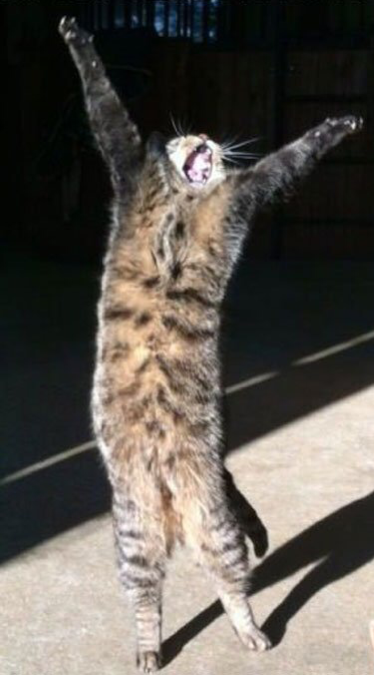
3K notes
·
View notes
Text
8K notes
·
View notes
Text
therapists don’t want to tell you this, but the best thing you can do for your mental health is to be a hater
49K notes
·
View notes
Text
when youre watching movie with family and theres porn scene

307K notes
·
View notes



